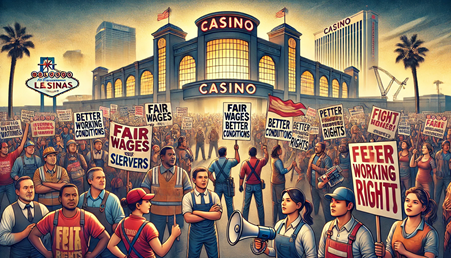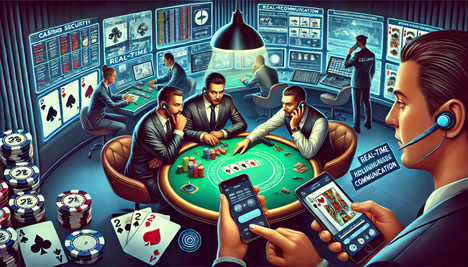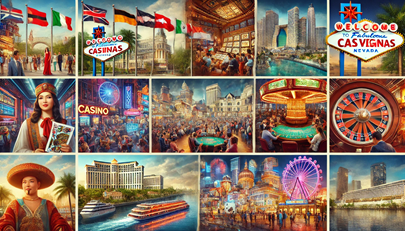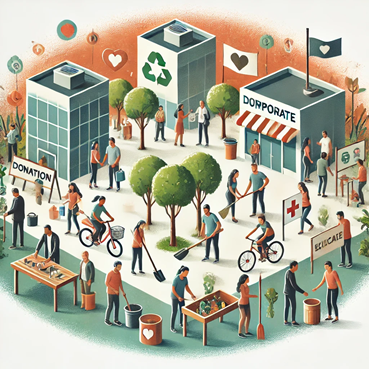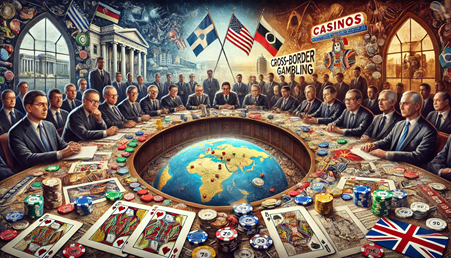How political ties influence the gambling industry

How political ties influence the gambling industry
by Nathaniel 03:58pm Jan 21, 2025
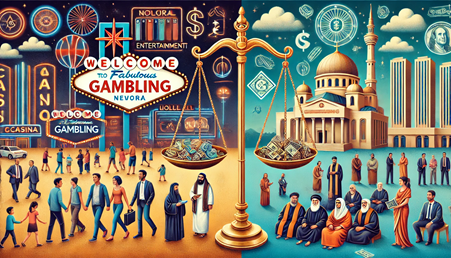
How political ties influence the gambling industry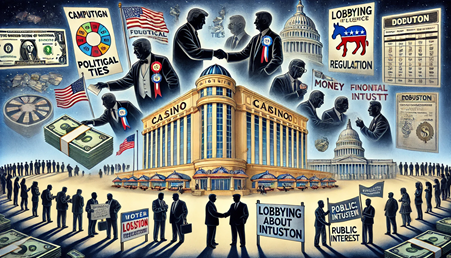
Political ties can influence the gambling industry in deeper, multifaceted ways. To explore the intricacies of this influence, we can look at several detailed areas where politics and gambling intersect:
1. Creation and Alteration of Gambling Laws
Legalization and Expansion: Political actors play a decisive role in determining whether gambling activities are legalized in a jurisdiction. Politicians may push for the legalization of new forms of gambling, such as sports betting, online gambling, or new casino developments, often in response to perceived economic benefits or public demand. For instance, the legalization of sports betting in the United States in 2018 was largely driven by political decisions at the state level after a Supreme Court ruling, and the industry has since exploded, with states developing their own regulations.
Voter Initiatives:In some cases, political influence comes directly from the electorate. Ballot initiatives or referenda, which are politically driven, allow voters to decide on gambling-related laws. For example, many U.S. states have passed gambling legislation through state referenda, giving the electorate a direct say, sometimes with the backing of lobbying efforts from the gambling industry.
2. Lobbying and Political Campaign Contributions
Lobbying Power:The gambling industry is one of the most prominent sectors when it comes to lobbying. Operators, casino owners, and other stakeholders often use lobbying as a tool to gain favorable political outcomes, such as tax breaks, relaxed regulations, or resistance to more restrictive gambling laws. Large gambling companies spend significant amounts of money to influence politicians, pushing for policies that benefit them. In turn, these lobbyists often form connections with lawmakers who can then advocate for their interests.
Campaign Contributions: Gambling businesses frequently make substantial donations to political candidates and parties, especially those in power or with the potential to influence gambling-related legislation. In some cases, these contributions lead to favorable regulatory decisions. The financial support provided by gambling operators can sway the outcome of elections, giving the industry significant political leverage.
Political Action Committees (PACs): Some gambling companies form PACs to support politicians who align with their interests. These PACs fund political campaigns, helping to elect candidates sympathetic to the expansion or deregulation of gambling. In turn, those candidates may pass laws that allow for the further growth of the industry.
3. Regulatory Oversight and Licensing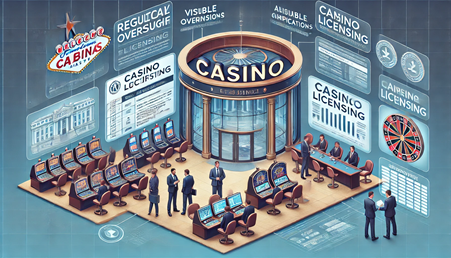
Licensing Control:Licensing is a crucial aspect of the gambling industry, and political decisions often determine who gets licenses to operate. In some jurisdictions, the licensing process can be influenced by political connections, where gambling operators with established political ties might have an easier time obtaining permits. Conversely, without political connections, smaller or new entrants into the gambling industry may find it difficult to navigate the regulatory landscape.
Regulatory Bodies:In many countries, specific regulatory bodies oversee gambling. These bodies, often composed of appointees or government officials, can be influenced by political factors. A change in administration can lead to a change in the direction or effectiveness of a gambling regulator, with new leadership possibly adopting policies that either tighten or loosen existing regulations.
4. Economic Incentives and Taxation
Revenue Generation: Politicians often view gambling as a source of revenue for state and local governments. As a result, political ties between government and gambling entities can lead to favorable tax policies for the industry. For example, if a state legalizes casinos, it may negotiate tax rates that are attractive to operators to ensure their business success, while simultaneously benefiting from a new stream of tax revenue.
Tax Breaks and Subsidies: In some cases, local or national governments provide subsidies, tax incentives, or infrastructure support to attract large gambling operators. This may include tax relief, development grants, or other economic incentives to lure high-profile casino brands or online gaming operators into particular regions, as gambling is often seen as a way to stimulate local economies, especially in areas with high unemployment or struggling industries.
5. International Political Relations
Cross-Border Gambling Agreements: Politicians are also involved in shaping the global gambling landscape. International agreements and treaties can impact how gambling is regulated across borders. For example, the European Union has worked on harmonizing certain online gambling regulations across member states, while other international entities like the World Trade Organization (WTO) have been involved in disputes about the legality of online gambling services across borders.
Online Gambling and National Sovereignty: Countries with strict gambling regulations may face pressure from international gaming operators, while some jurisdictions, like Malta or Gibraltar, may align with gambling companies to attract foreign investment. National political agendas can shape international gambling policy countries with lax regulations may be seen as “safe havens” for online gaming operators, while others may attempt to restrict foreign gambling to protect domestic operators or prevent illegal gambling activities.
6. Cultural and Moral Influence
Social Attitudes and Political Decisions: Politicians are often influenced by the moral and cultural perspectives of their constituencies. In regions where gambling is culturally opposed (such as certain conservative or religious communities), political leaders may avoid gambling legalization or impose heavy restrictions. Conversely, in more liberal or progressive areas, politicians may be more inclined to support gambling expansion, seeing it as a form of personal freedom or economic opportunity.
Moral Arguments:Political figures often face moral dilemmas in balancing the financial benefits of gambling with its potential social costs, such as addiction and problem gambling. Some politicians may align with advocacy groups pushing for greater regulation or a ban on gambling, while others may resist such pressures, seeing the economic benefits as outweighing the social concerns.
7. Public Health and Social Welfare
Social Impact Legislation: As gambling expands, political figures may enact laws intended to address the potential negative social consequences, such as gambling addiction or financial ruin for vulnerable individuals. Public health campaigns, limits on advertising, self-exclusion programs, and the introduction of responsible gambling initiatives are often influenced by political considerations. Politicians may face pressure from advocacy groups to regulate gambling more strictly in order to mitigate harm.
Public Welfare Funding: Gambling revenue is sometimes allocated to public welfare programs. In some cases, political leaders will propose using gambling tax revenue for education, healthcare, or addiction treatment services. This is often framed as a way to offset the negative social impact gambling might have on certain communities.
8. Industry-Created Narratives
Shaping Public Perception: The gambling industry uses its political connections to shape the narrative around gambling. Through strategic partnerships, financial contributions, and media campaigns, the gambling industry can influence political discourse, presenting itself as a force for economic good or a legitimate form of entertainment. In some cases, this influence can mitigate public resistance or shift opinions in favor of more liberal gambling laws.
In conclusion, political ties influence the gambling industry in profound ways, ranging from legislative decisions and economic incentives to cultural attitudes and public welfare concerns. The interaction between politics and gambling is complex, with stakeholders on both sides—politicians, lobbyists, regulators, and the public—shaping the legal and operational landscape of the industry. The gambling sector often leverages political relationships to create favorable conditions for growth while navigating public concerns and ethical issues.


